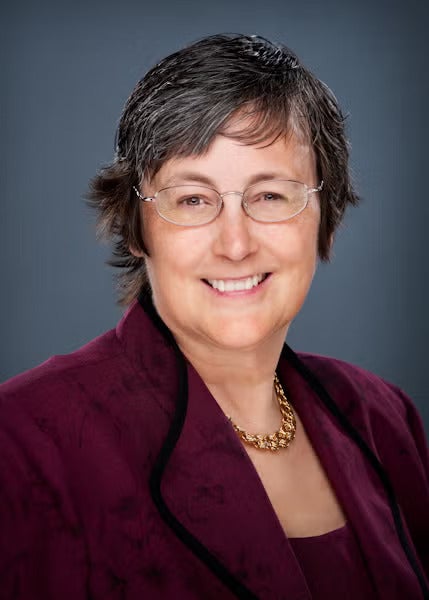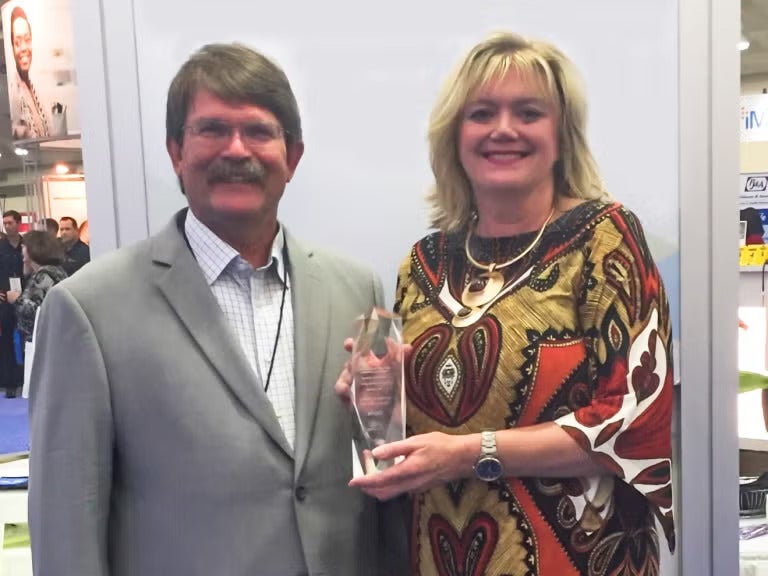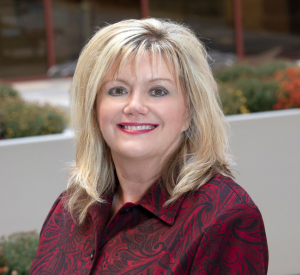“The Cure for Cancer is in the Data”
Kim Peterson, assistant professor in the School of Health and Rehabilitation Sciences (SHRS) Health Informatics (HI) program, is passionate about where the world of HI will take us. “We have tons of electronic health information. Now, how do we get the data out and analyze it to make sense of it?” After 25 years directing health information management (HIM) at local hospitals and working alongside fellow Pitt HI researchers, Peterson is convinced that “the cure for cancer is in the data. Somewhere in those archives if you pull out the right combination of all that information, I believe that you’re going to get a cure for a number of these diseases. It’s not going to be simple or easy, but we’re on the right track.”
Someone who didn’t live to see these great advances in HI was Gerri Walk, an early graduate of Pitt’s Health Records Administration program–the precursor to today’s HI program. As a young undergraduate student in the late 1970s, she fell in love with the meticulous organization of health record data and graduated magna cum laude with her bachelor’s degree in 1979. Pitt did not yet have graduate programs in the field for her to pursue further studies, but armed with her undergraduate degree and an appetite for knowledge, Walk excelled in the field, nonetheless. She became an expert in medical coding and a leader in the HIM community for the next three decades, holding positions at Anne Arundel Medical Center, Presbyterian-University Hospital, Sewickley Valley Hospital, Coopers & Lybrand, Shadyside Hospital and Health Records Services Corporation. She used her expertise to develop training programs and workshops for staff in medical records departments, presented at state and national HIM conferences, and authored numerous articles in national journals. “She took something complicated and made it easy to understand,” says her husband, David. At conferences, her approachable nature and love of teaching made Walk well known wherever she went and she always made time to meet with fellow Pitt alumni.
In 2008, a bone cancer diagnosis shook her world, but she continued to work through the chemotherapy sessions and its challenging side effects. Her life ended all too soon in 2014 at the age of 57 when she was still in her prime. Before her passing, she planned to leave a $25,000 endowment that would continue to support the Pitt Health Informatics program and its students. The endowment now provides a $1,000 scholarship every year, which is matched by David’s employer, Aon Programs, so that two HI students benefit from the Walk family’s continued generosity.

The Impact of a Scholarship
In 2016, the first Gerrilynne “Gerri” Siren Walk Memorial Student Award was presented to Kim Peterson. She was deep into her doctoral program creating a quality-of-life indicator scale to improve health care for people in underserved communities and plugging away at the research statistics on a tired old laptop. The computer was slow and frustrating, but as a seasoned veteran of what life can throw at you, she learned to roll with it and make the best with what she had.
Peterson first graduated from Pitt with her bachelor’s degree in HIM, then went back to earn her master’s in Health Care Supervision and Management while working full time and raising a young family. After a long, successful career working in HIM at local hospitals, Peterson decided to return to Pitt to pursue her dream of getting a PhD and teaching at her alma mater. “It was a leap, especially financially and later in life. I wasn’t 30.” she says. “I was getting a divorce and thought to myself, ‘What do I want to do for the next 20 years?’ So I went back and put myself through school.”
Few women in her position would entertain the idea of leaving the security of a well-paying job to enter a rigorous PhD program, but Peterson had this goal lingering in the back of her mind for a long time. With her daughters’ support, she jumped fully in. Although she was working as a graduate assistant during her PhD program, she still had to make ends meet, so replacing her “clunky” laptop was not a luxury she could afford.
When a new scholarship was announced in the HI program, she was nominated by then-Department Chair Mervat Abdelhak. As the winner, Peterson was presented with the $1,000 award by David at the 2016 National Health Information Management Conference in Baltimore. It was a special celebration since his wife had worked in the area for 23 years. Many of her former coworkers, colleagues and fellow alumni could attend the award ceremony and celebrate her spirit.
“The scholarship helped me immensely,” Peterson recalls. “It helped me buy a brand new computer. I was a single mom of two, so it was a big deal for me to have $1,000. With Health Informatics, you are doing all your PhD research using that computer, so it’s a vital piece of equipment in order to do anything. I had so much gratitude that Gerri had the foresight to do this for HIM students.”
Now Peterson is living her dream, thriving as a teacher and advisor to Pitt HI undergraduate and graduate students. Her long career in the field has given her a valuable perspective with stories of the real world that students crave to hear. She brings in guest speakers, is the faculty liaison for student groups and bridges a gap between academia and the professional world that enriches the student experience in the HI programs. She laughs at the suggestion that she is the “fairy godmother” of the HI programs, but doesn’t disagree that she brings experiences to students that they would not get anywhere else but at Pitt. In a way, Peterson is following in the footsteps of her own fairy godmother, Gerri Walk, who blazed the HI trail and is still looking over the success of students at Pitt.
Paying it Forward
David Walk returns to Pitt every spring to present his wife’s scholarship to two deserving students who show the eagerness to make a difference in the future of HI and in their community. When he is asked what his wife would think about the students receiving her scholarship, he answers, “She would beam seeing students get into the field, and to see its expansion and the graduate opportunities that she didn’t have during her career.”
He believes that she would be fascinated by the artificial intelligence being used to analyze electronic health records. Perhaps the scholarship will give Pitt HI students the opportunity to dig deeper into these records and find the cure for cancer, ensuring that the legacy of Gerri Walk lives on.

